Evaluation
Independent evaluations of the Reading Schools programme.

The Reading Schools programme was piloted in 2019 and is now a nationwide accreditation programme that aims to help schools build and sustain a reading culture. Independent evaluations examine the programme's impact on learners, learning professionals and schools. They look at success factors and areas for development; with accompanying case studies from participating schools.
Reading Schools report 2023/24
Reading Schools has demonstrably contributed to the development of a reading for pleasure culture in schools. In the 2023/4 report, we were able to include voices of learners for the first time.
Key conclusions
Overall, learning professionals reported that Reading Schools had a significant impact for both learners and school staff, and was flexible, well-supported and clear. Local Authority partners felt Reading Schools fitted well with local strategies and built on foundations created in many schools, while offering new ideas to engage learners.
Learners at the schools visited as part of this evaluation said that Reading Schools helped them to read more and enjoy different types of books. They also felt it would help them to continue to enjoy reading as they get older.
Schools reported that they felt Reading Schools gives positive opportunities for pupil engagement and leadership. They also learned how to plan events and activities, often providing opportunities for family and community engagement.
Schools also reported seeing a marked increase in reading for pleasure in learners who were not previously enthusiastic readers, as well as those with additional support needs, from socio-economically disadvantaged backgrounds, and those with English as an additional language. There was a strong suggestion that taking part in Reading Schools had impacted positively on learning and attainment and contributed to wellbeing, empathy and creativity.
Please note: An accessible, plain text version of the report can be found at the bottom of this page.
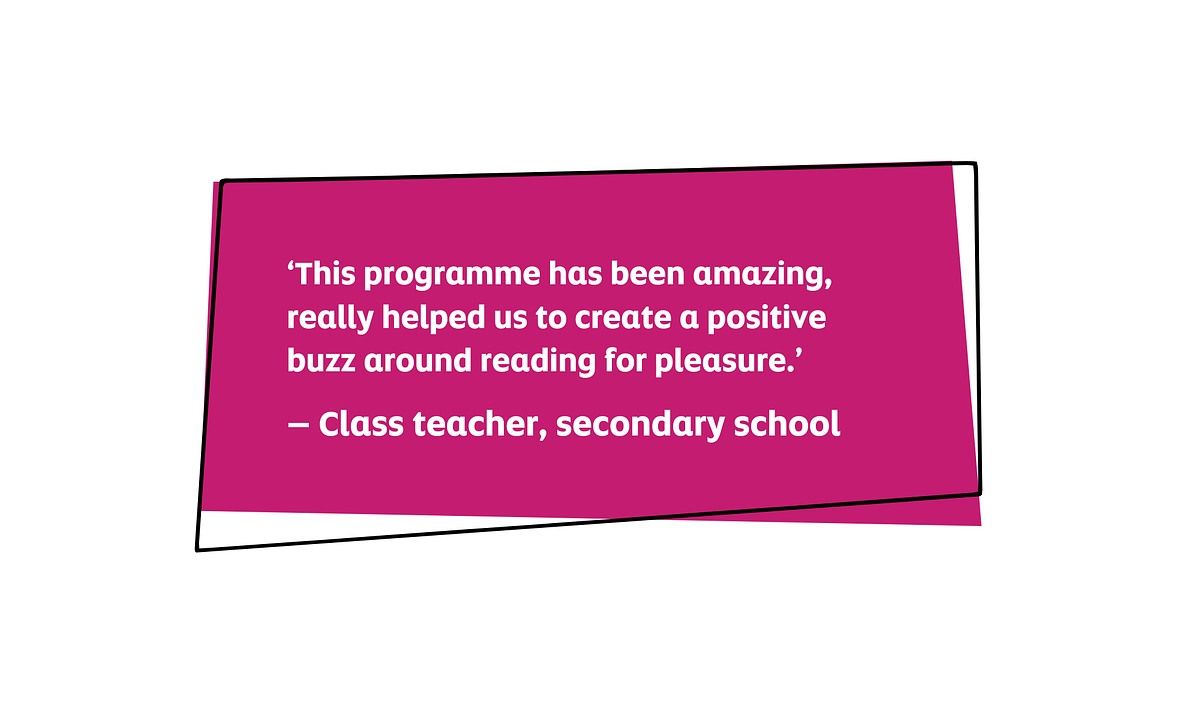
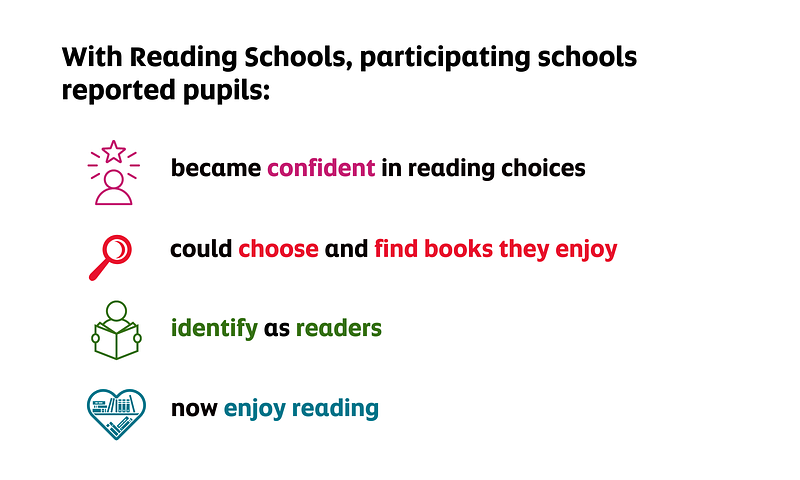
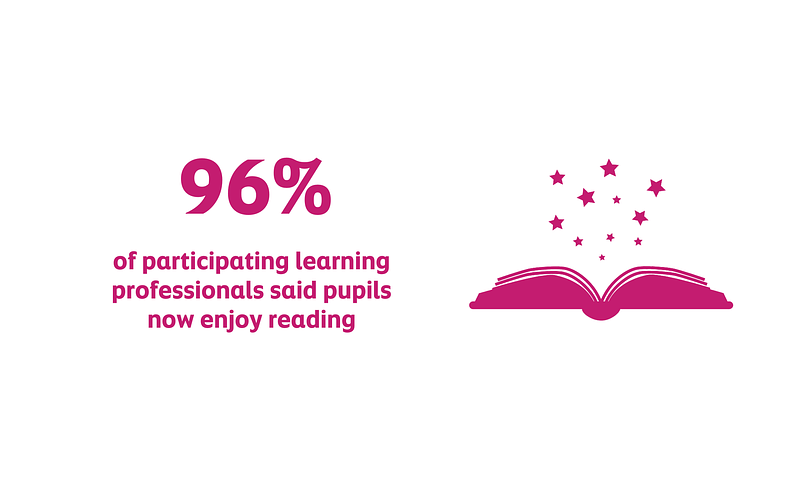
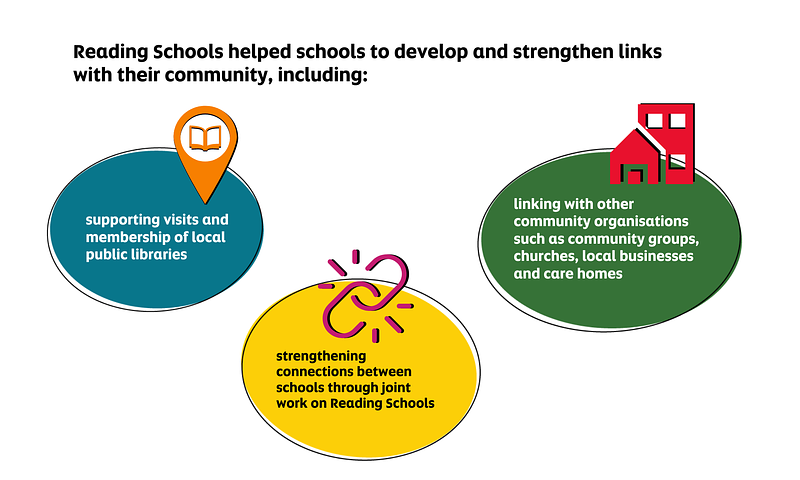
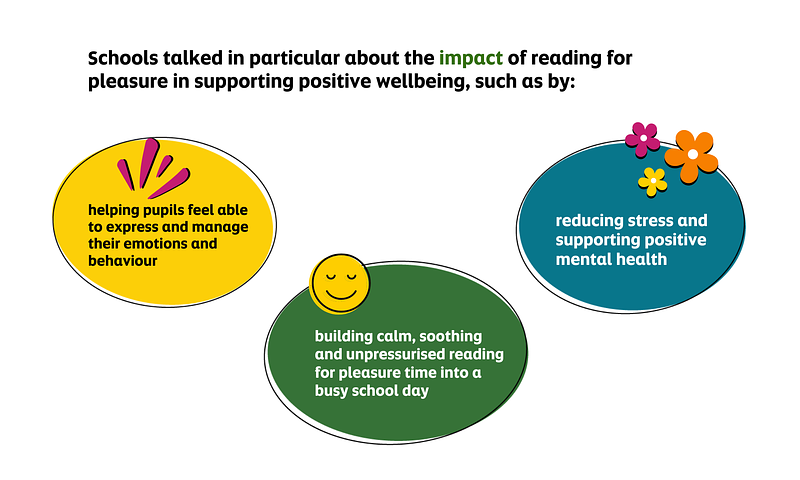
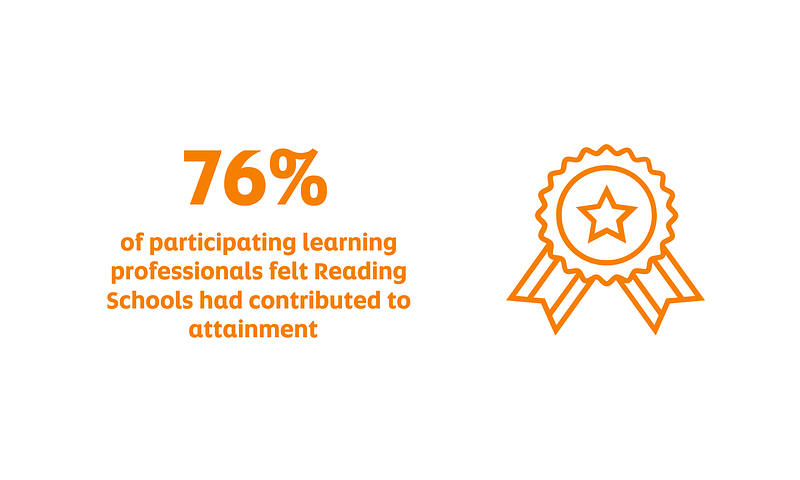
Reading Schools' evaluation reports
You can download the full evaluation reports and case studies for the Reading Schools programme below.
Accessibility note: For an accessible version of the report, please download the plain text document.
If you require any of the below reports in an alternative format, please email digital@scottishbooktrust.com(this will open in a new window).

